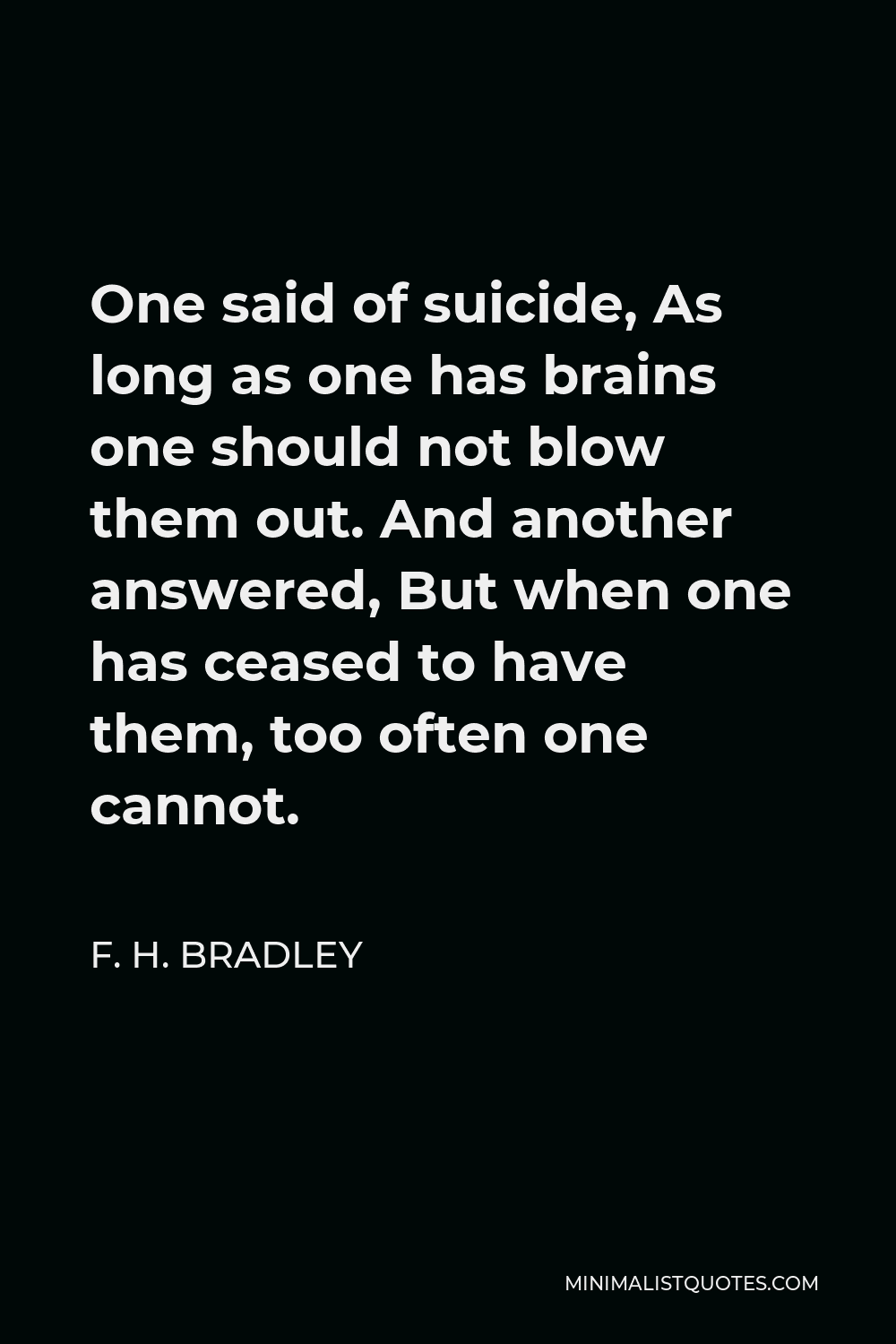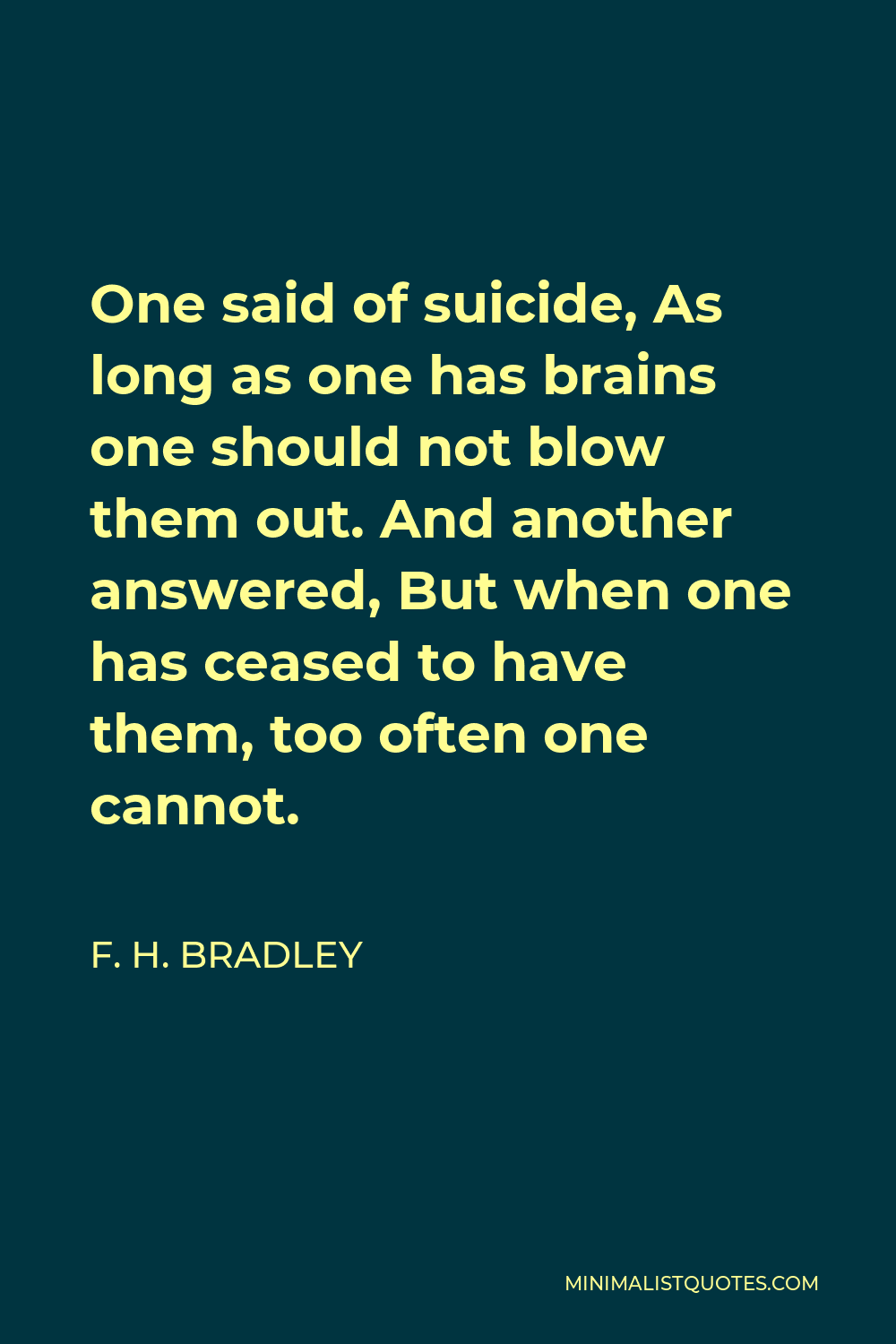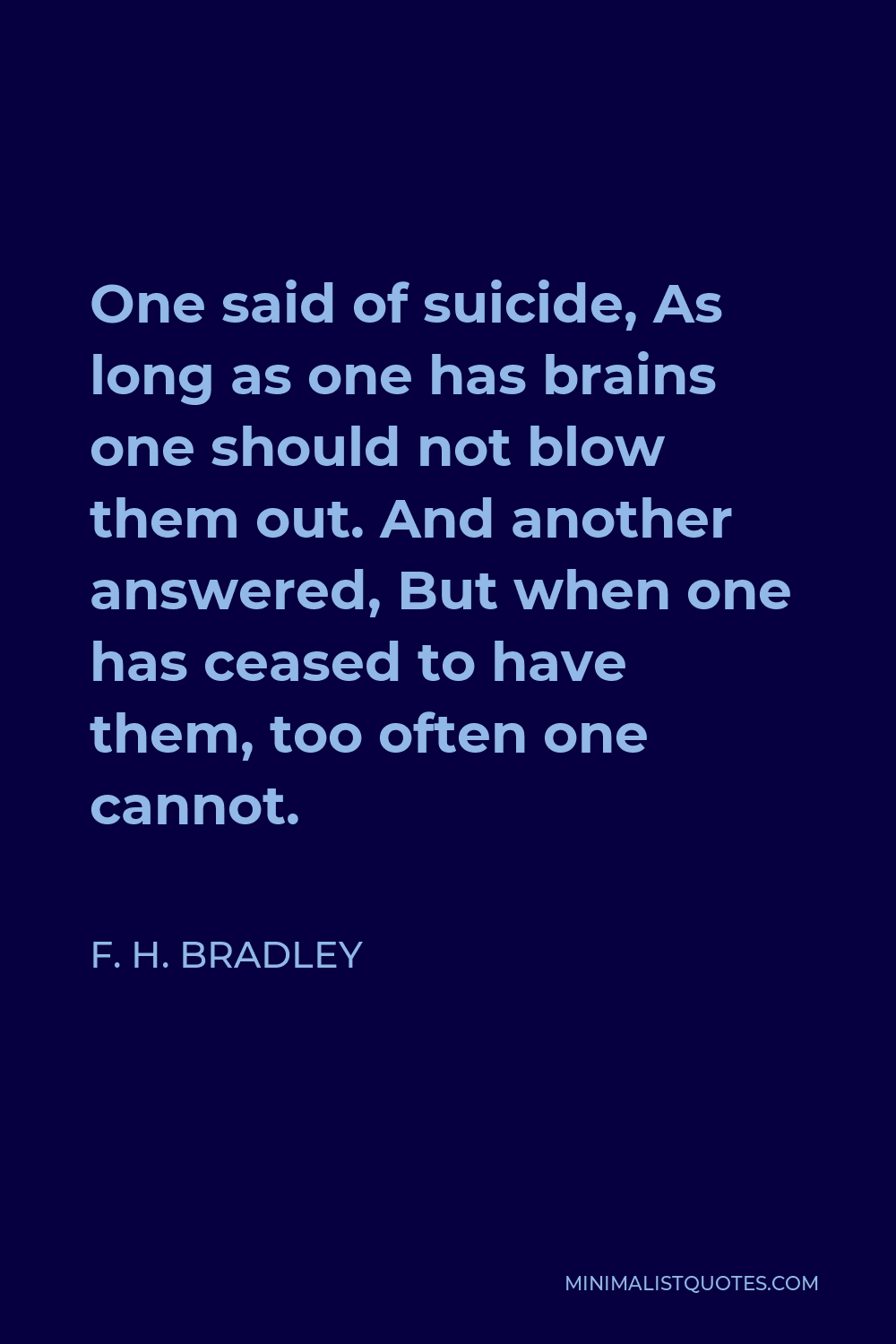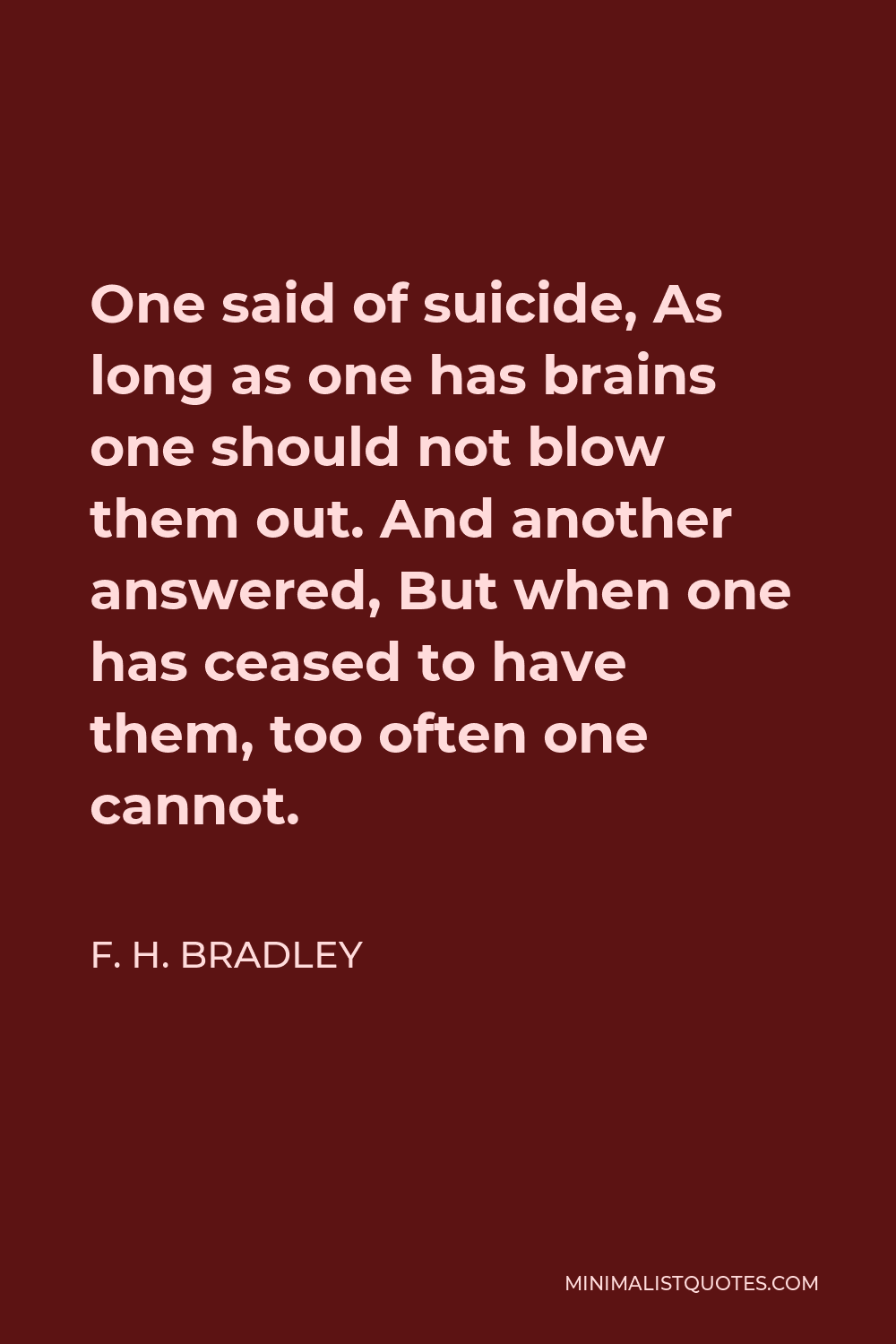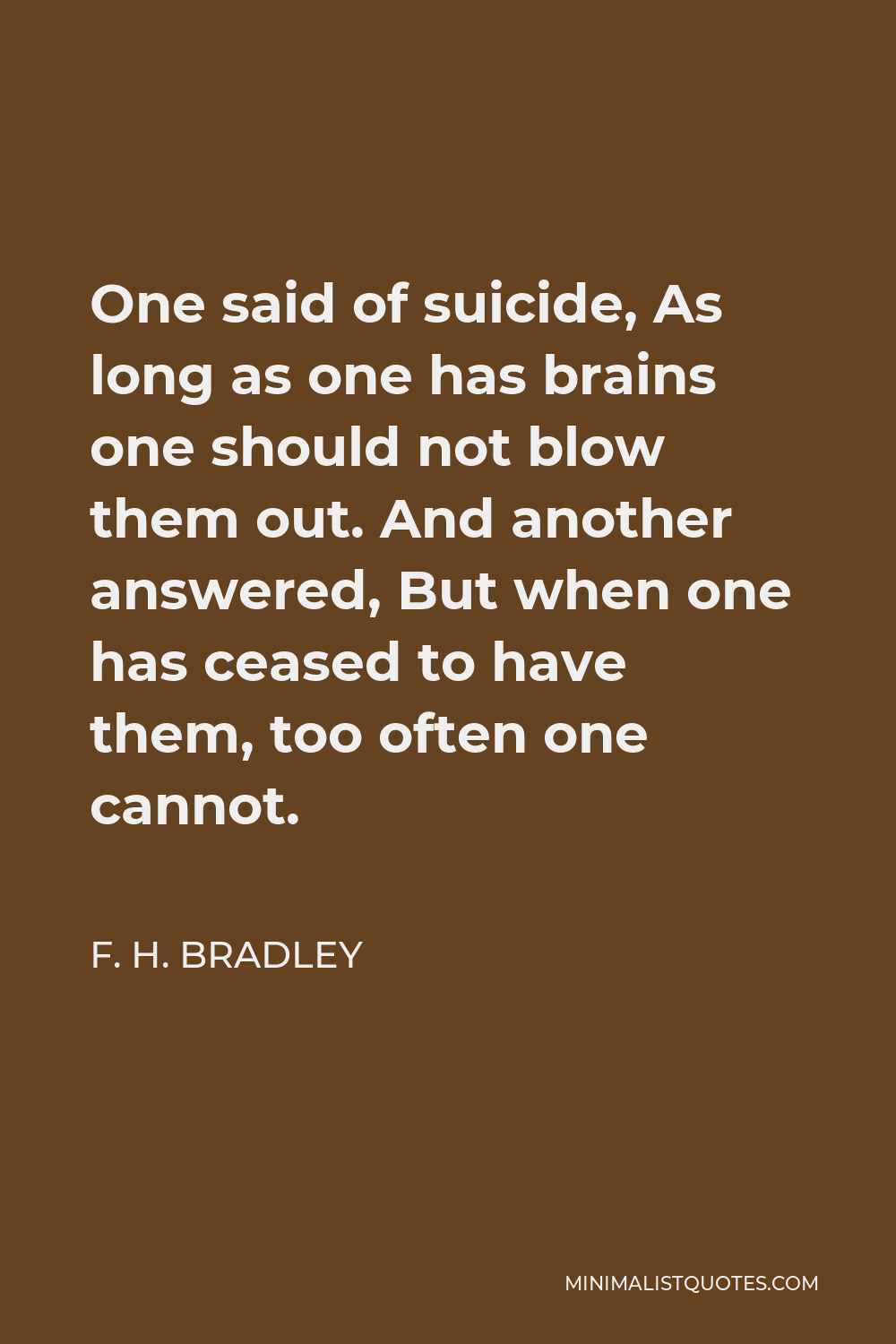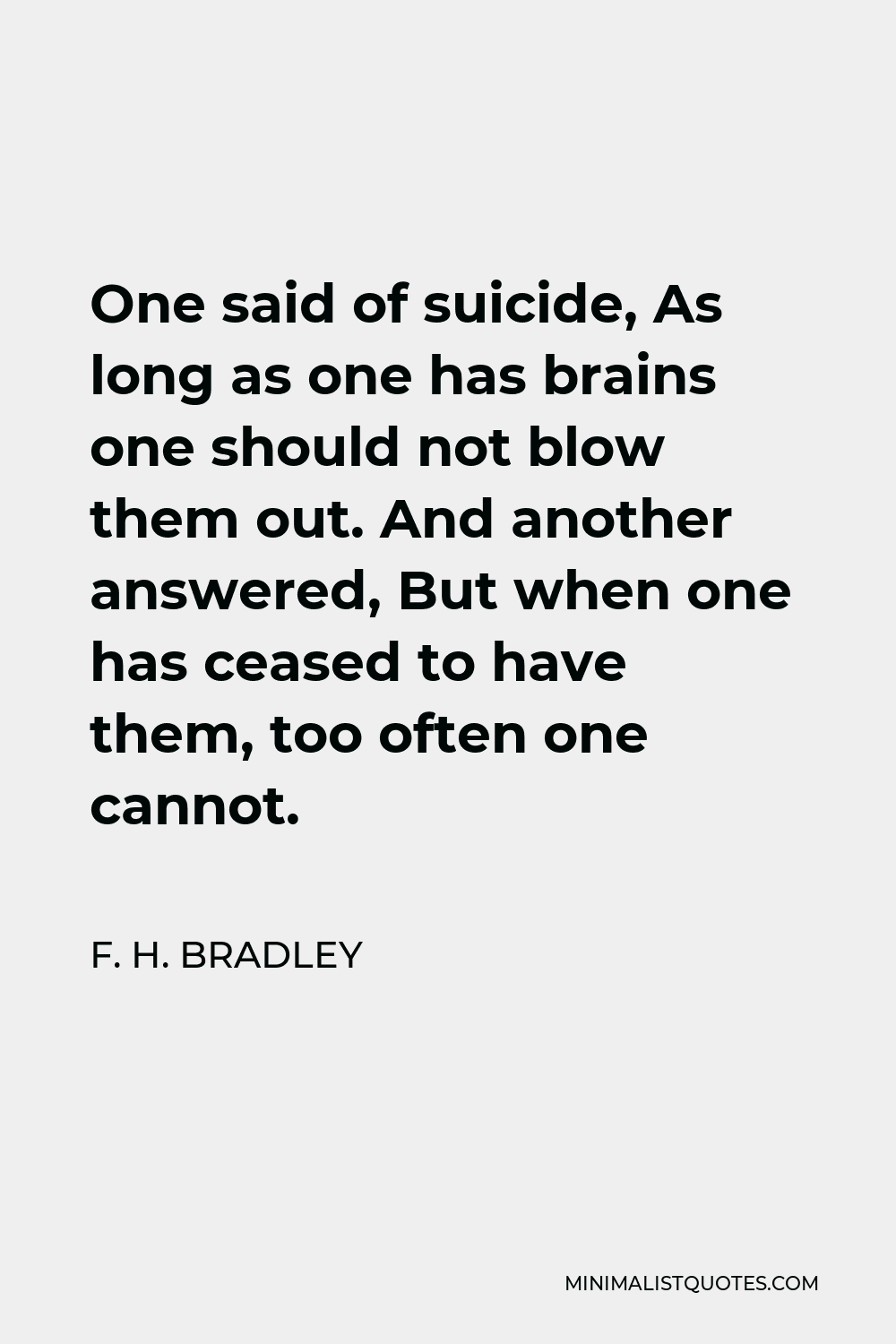There are persons who, when they cease to shock us, cease to interest us.
F. H. BRADLEYOne said of suicide, As long as one has brains one should not blow them out. And another answered, But when one has ceased to have them, too often one cannot.
More F. H. Bradley Quotes
-





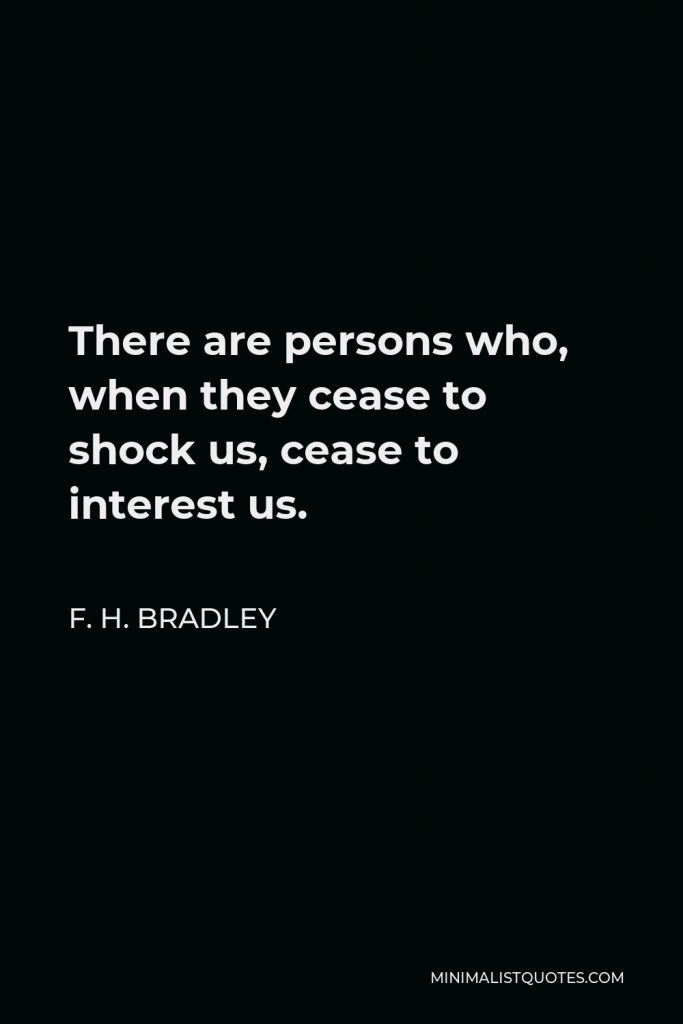

-





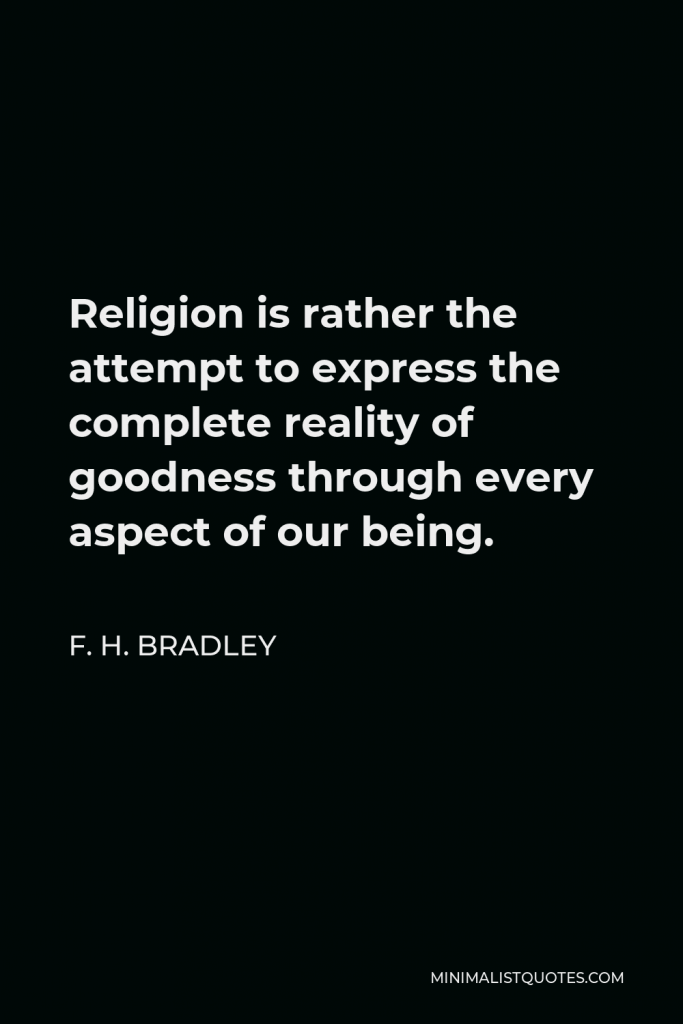

Religion is rather the attempt to express the complete reality of goodness through every aspect of our being.
F. H. BRADLEY -





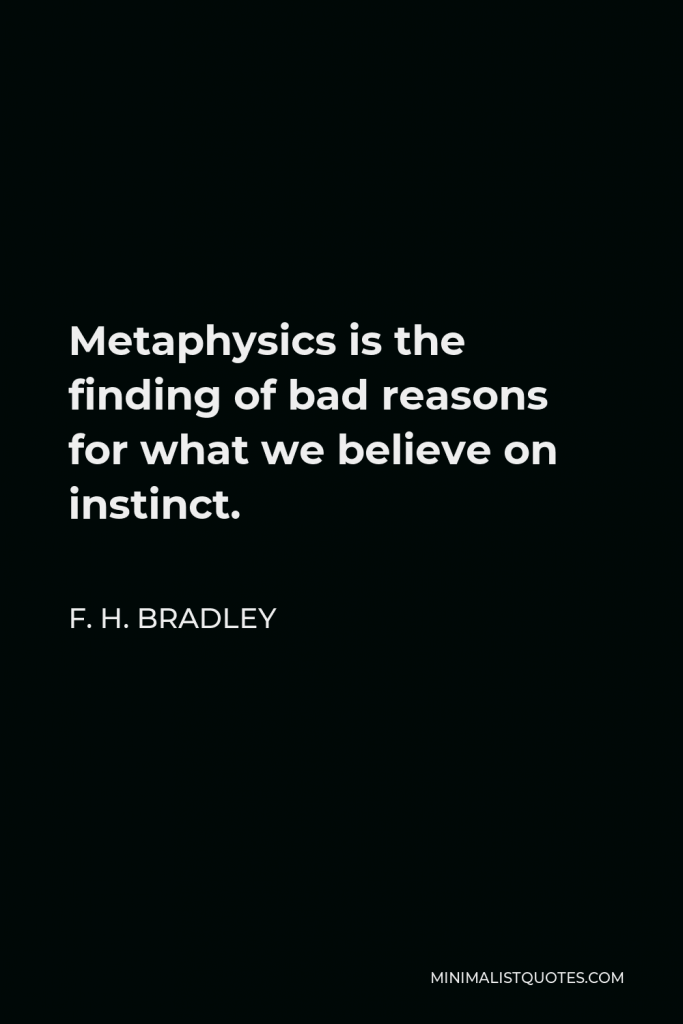

Metaphysics is the finding of bad reasons for what we believe on instinct.
F. H. BRADLEY -





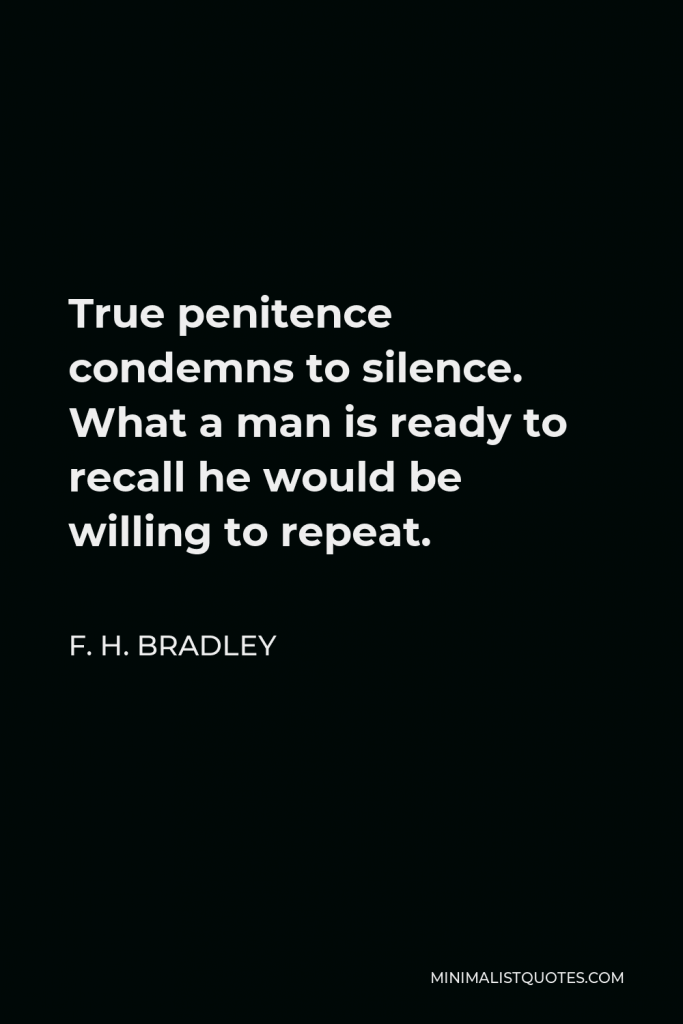

True penitence condemns to silence. What a man is ready to recall he would be willing to repeat.
F. H. BRADLEY -







There are those who so dislike the nude that they find something indecent in the naked truth.
F. H. BRADLEY -





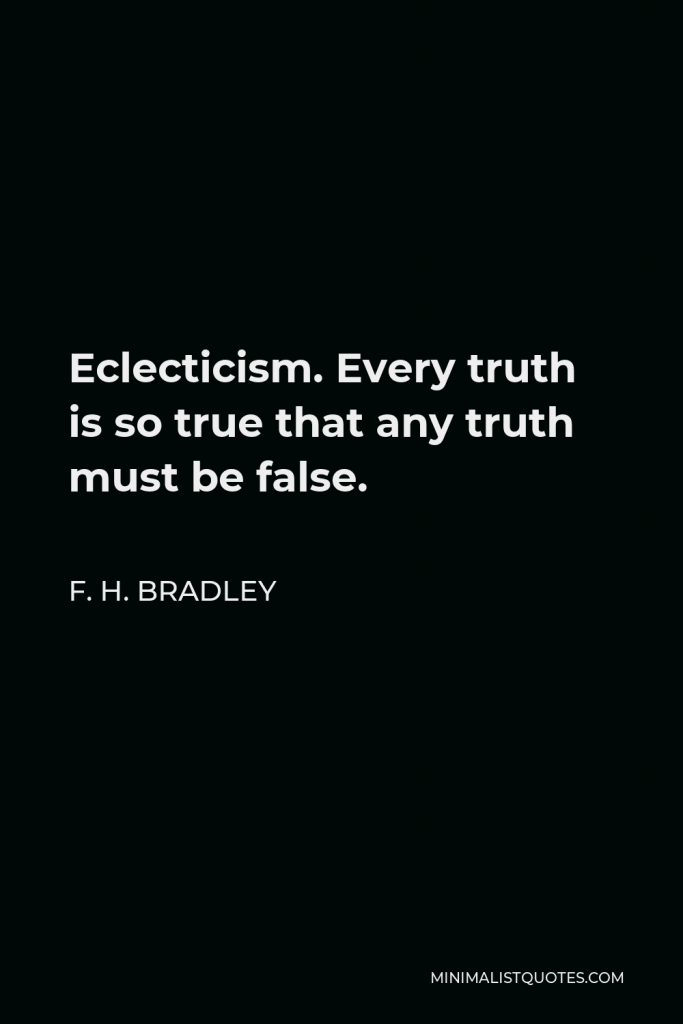

Eclecticism. Every truth is so true that any truth must be false.
F. H. BRADLEY -





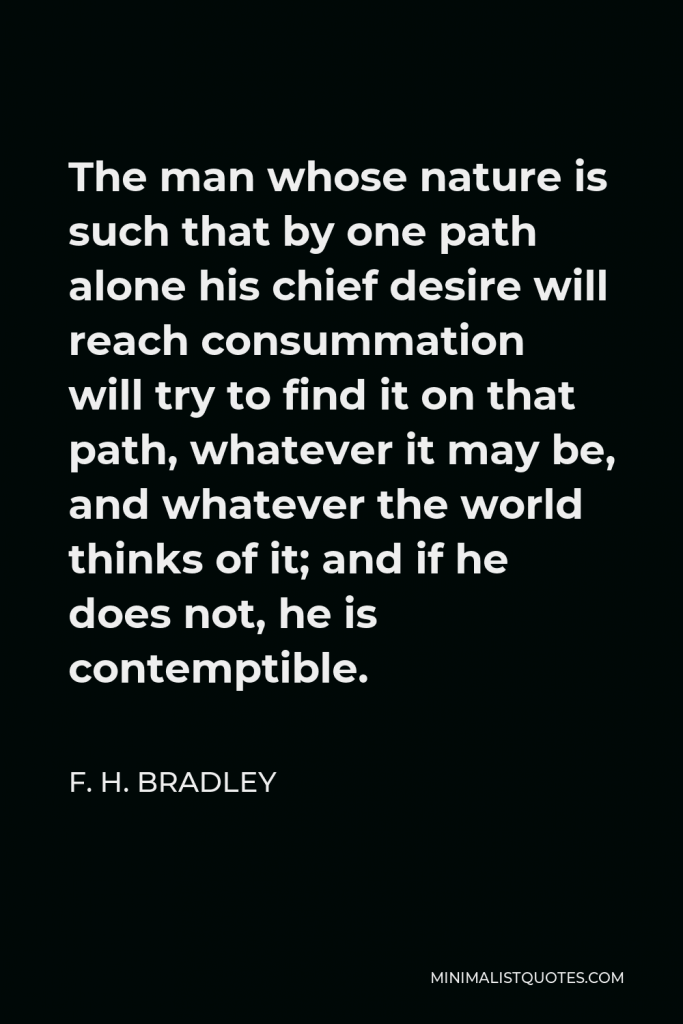

The man whose nature is such that by one path alone his chief desire will reach consummation will try to find it on that path, whatever it may be, and whatever the world thinks of it; and if he does not, he is contemptible.
F. H. BRADLEY -





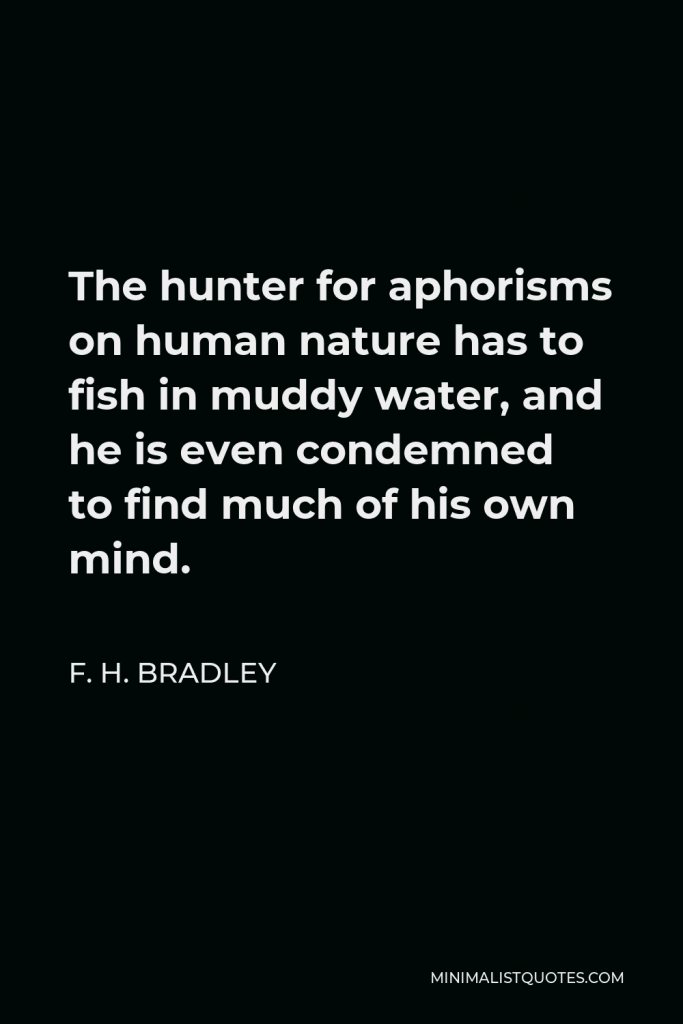

The hunter for aphorisms on human nature has to fish in muddy water, and he is even condemned to find much of his own mind.
F. H. BRADLEY -







Few people would not be the worse for complete sincerity.
F. H. BRADLEY -







Up to a certain point every man is what he thinks he is.
F. H. BRADLEY -





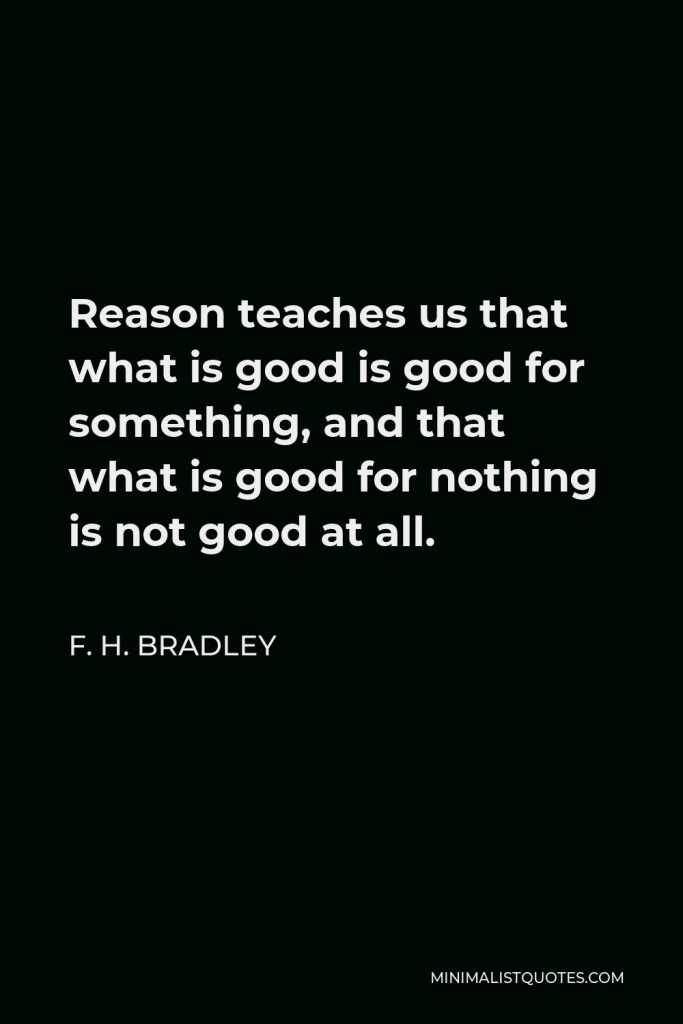

Reason teaches us that what is good is good for something, and that what is good for nothing is not good at all.
F. H. BRADLEY -





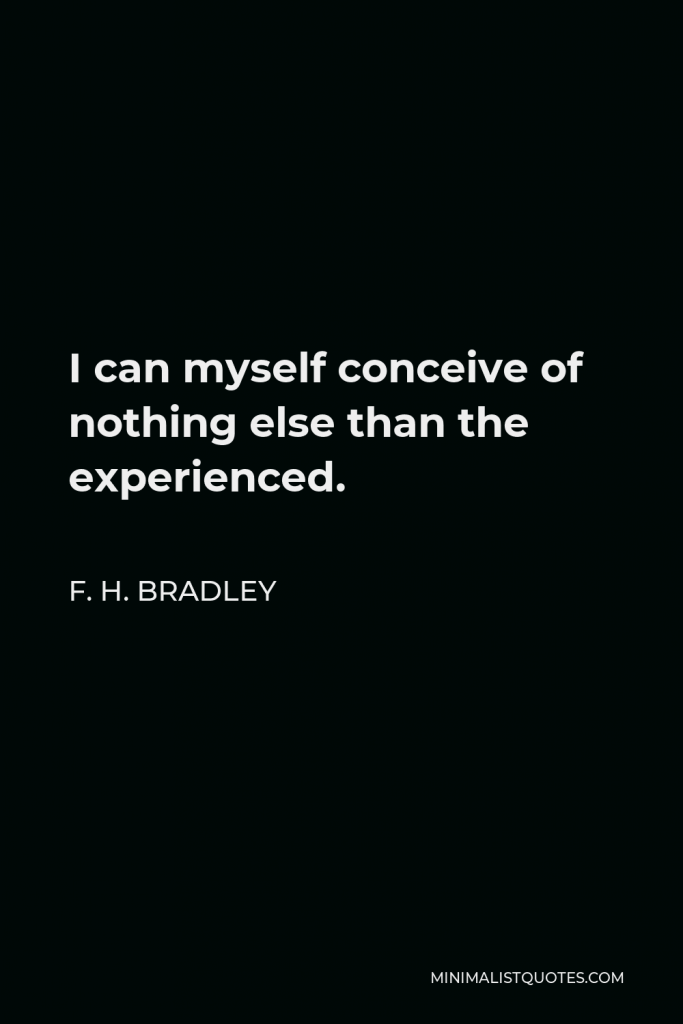

I can myself conceive of nothing else than the experienced.
F. H. BRADLEY -





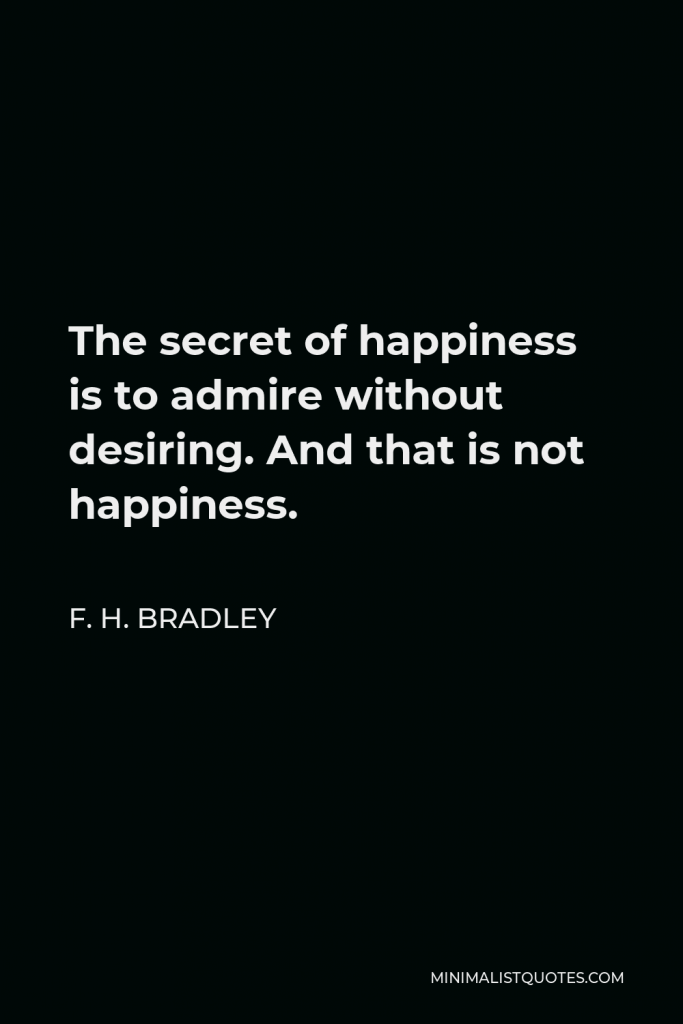

The secret of happiness is to admire without desiring. And that is not happiness.
F. H. BRADLEY -







The force of the blow depends on the resistance. It is sometimes better not to struggle against temptation. Either fly or yield at once.
F. H. BRADLEY -





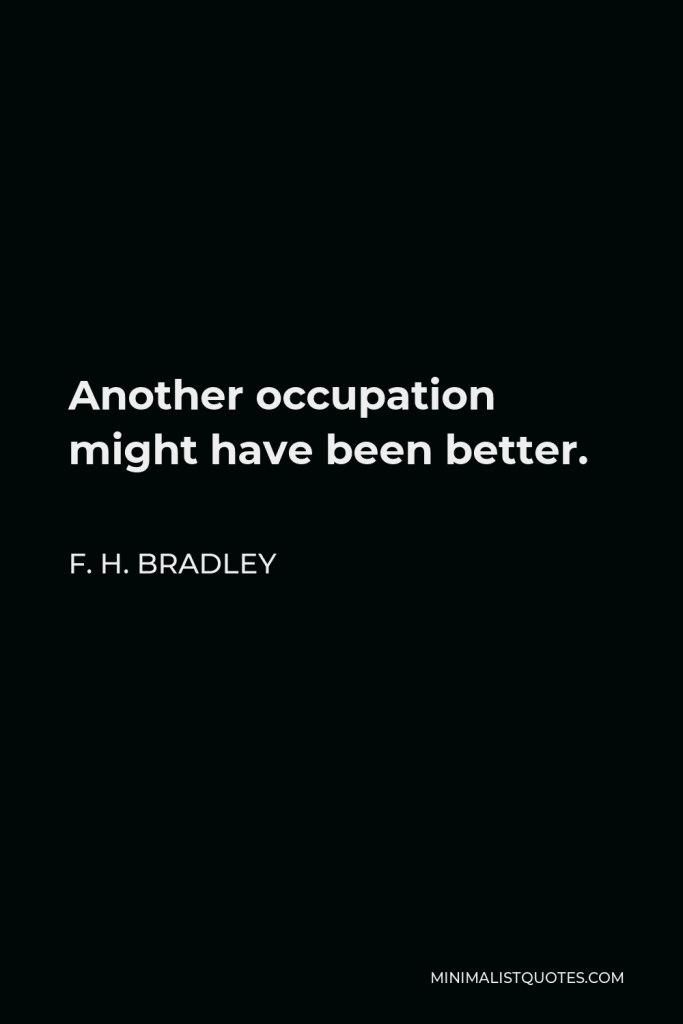

Another occupation might have been better.
F. H. BRADLEY -







The deadliest foe to virtue would be complete self-knowledge.
F. H. BRADLEY
